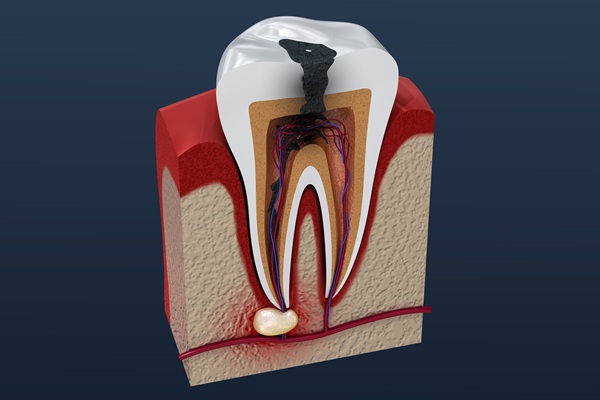How Common Is Dental Anxiety?

Choosing the right dentist is important when addressing dental anxiety. Some dentists are fully prepared to address their patients' anxiety, while others place various levels of importance on how to treat patients who experience anxiety. When the right dentist is chosen, patients are more likely to make it to their regular dental appointments, supporting their good oral health.
What is dental anxiety?
While most people know whether they have some level of anxiety, those who have a small case of dental anxiety may not even realize it. Common symptoms include sweating, heart palpitations, worry, fear, crying, aggression, feeling overwhelmed and an overall feeling of panic. According to WebMD, between 9% and 20% of Americans avoid going to the dentist because of anxiety or fear. This means up to one in five people may not be going to their dental appointments due to dental anxiety.
Tips for dental patients who experience anxiety
The list below includes some beneficial tips for dental patients who are currently living with dental anxiety. Those who experience any level of anxiety should not feel embarrassed, as anyone can experience this condition.
Communication
Good communication with an experienced and caring dentist is essential for patients who experience dental anxiety. By a patient letting the dentist know what types of symptoms they are experiencing, the dentist is then able to offer them advice on what they can do in order to feel less anxious before, during and even after their appointment. One example of how dentists can help patients is to show them a few hand signals they can use when undergoing treatment, allowing the patient to let them know whether they are fine or need to take a break.
Get comfortable
Dentists can help anxious patients be comfortable by asking them questions before their dental appointment. The answers to these questions will help them accommodate the patient once it comes time for their appointment. For the most part, dentists want to know things like whether their patients have a fear of injections, if they can easily breathe through their nose, if they have a strong gag reflex, or if they are afraid to get X-rays and anything that can get in their way of being comfortable during dental treatment.
Relaxation techniques
Many dental patients will benefit from learning one or more different techniques to help them relax before, during and after dental appointments. Examples of some of the more common techniques used include deep and controlled breathing, visualization and meditation. All of these techniques are proven to be effective for their ability to relax someone, it is simply a matter of dental patients figuring out which relaxation techniques are going to work best for them.
Do you struggle with dental anxiety?
Now that you have read the above information, it is understood just how common anxiety is in dental patients. While it is understandable that many patients will put off going to a dental office because they experience so much anxiety, the above tips should help them, allowing them to make it to their necessary dental appointments.
Request an appointment here: https://lincroftvillagedental.com or call Lincroft Village Dental Care at (732) 842-5005 for an appointment in our Lincroft office.
Check out what others are saying about our dental services on Yelp: Dental Anxiety in Lincroft, NJ.
Recent Posts
There is no one-size-fits-all answer to whether a smile makeover or a single cosmetic dental treatment is better. A smile makeover includes multiple procedures to improve the overall shape, color, and alignment of a smile in a planned order. However, some individuals may only need one cosmetic dental treatment to achieve their smile goals. The…
Patients often search for root canal treatment when a tooth aches from deep decay, a crack, or inflamed pulp tissue. This therapy removes irritated nerve tissue, disinfects the canal space, and seals the tooth to prevent reinfection. By preserving the natural root, the procedure maintains bite balance and chewing strength. With careful planning, a restored…
Dental implant restoration is a reliable and long-lasting solution for replacing missing teeth. However, caring for and maintaining your dental implant from the start is important to get the best results. A consistent oral hygiene routine and regular dental visits are necessary to protect this investment in your long-term oral health.Brushing and flossing are essential…
An implant dentist uses artificial tooth roots to anchor a restoration for a lost tooth or teeth. By replacing the lost tooth roots, dental implants provide you the strength and stability needed to chew food and perform other oral functions. Also, they help to stimulate and preserve jawbone structure, stopping bone loss, and maintaining facial…


